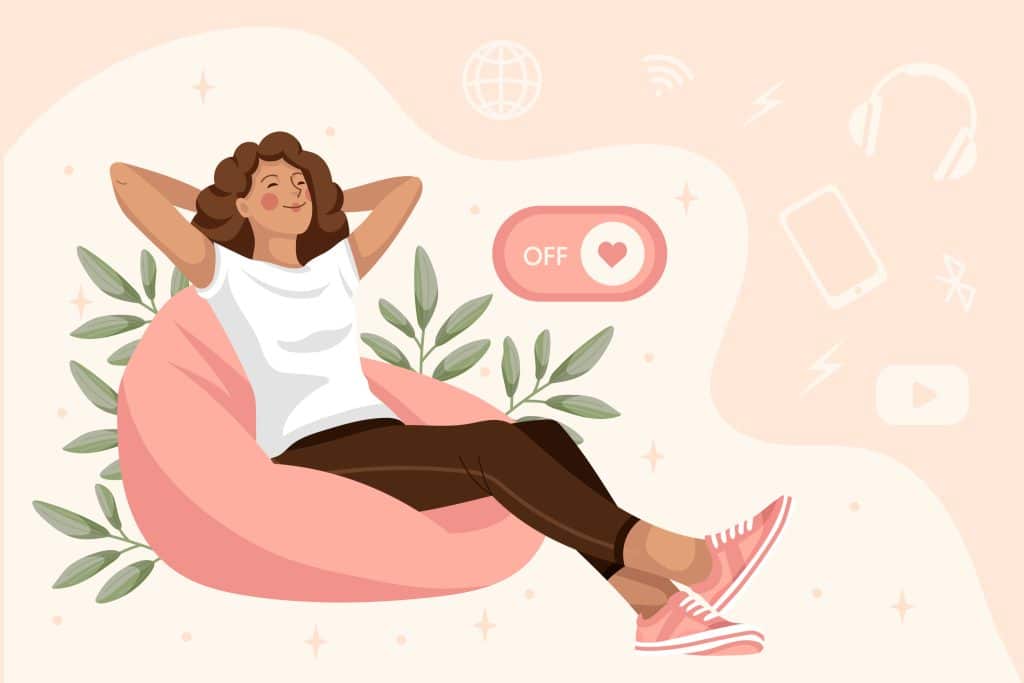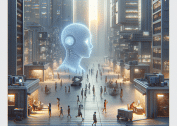In today’s hyper-connected world, technology is everywhere. From the constant barrage of emails and notifications on our smartphones to the temptation of social media and digital distractions, it’s difficult to escape the pull of screens. Yet, there is growing recognition of the importance of disconnecting from technology for improved focus, well-being, and productivity. As our lives become more digitized, it’s essential to understand how taking a break from technology can enhance mental clarity, boost concentration, and ultimately improve overall life satisfaction.
In this article, we will explore why disconnecting from technology is crucial for better focus, productivity, and well-being, and provide practical tips on how you can implement a tech detox into your daily routine.

The Rise of Digital Overload
We’ve all experienced the feeling of being overwhelmed by technology. From incessant notifications that pull us away from tasks to endless streams of information on social media, it can feel as if we’re constantly connected and never truly present. According to a study by the American Psychological Association, nearly 60% of adults report feeling stressed by the constant presence of technology in their lives. This digital overload isn’t just an emotional reaction—it’s backed by science. Research has shown that multitasking between devices and constant task-switching can actually impair our ability to focus, making us less efficient and reducing our cognitive performance.
Moreover, the impact of technology on our mental and physical health is becoming increasingly evident. Constant connectivity can lead to sleep disruption, increased stress, and even strained personal relationships. With technology infiltrating almost every aspect of our lives, it’s becoming harder to find balance and tranquility. Fortunately, studies suggest that disconnecting from technology can help restore balance and promote better focus.
The Science Behind Disconnection
Several studies have explored the effects of taking breaks from technology on cognitive function. For instance, a 2020 study published in Psychological Science found that individuals who took a short break from digital devices performed better on tasks requiring focus and cognitive performance than those who continued using their devices. The break from technology allowed their brains to “reset,” reducing the cognitive load and improving concentration when they returned to the task.
Disconnecting from screens, particularly in the evenings, can also improve sleep quality. The blue light emitted from screens interferes with the production of melatonin, the hormone responsible for regulating sleep. According to the National Sleep Foundation, exposure to blue light before bed can delay sleep onset and reduce sleep quality. By unplugging from digital devices before sleep, individuals can improve their circadian rhythms, resulting in better rest and more focused energy during the day.
Real-Life Benefits of Disconnecting
1. Improved Mental Clarity
When we disconnect from technology, we give our brains a much-needed break from constant stimulation. This allows our minds to clear out distractions and focus on what’s important. Without the pull of notifications or the urge to check emails, we can concentrate on tasks with greater mental clarity. This can lead to increased productivity and the ability to process information more effectively.
Studies have shown that regular breaks from technology can help combat mental fatigue. When we constantly switch between tasks, our brains expend more energy, which can lead to cognitive overload and burnout. Disconnecting, even briefly, allows our brains to recharge, resulting in better focus and enhanced mental performance when we return to our tasks.
2. Enhanced Creativity
In today’s digital age, it’s easy to get caught up in the endless scrolling of social media, which can stifle creativity. However, taking breaks from technology can help stimulate creative thinking. When we step away from screens, we open up space for our minds to wander and make new connections. Many people report that their most creative ideas come when they’re not actively working, but instead when they’re walking, showering, or engaging in an activity without digital distractions.
In fact, some of the world’s most successful creators, entrepreneurs, and thinkers regularly disconnect from technology to allow for deep thinking and creative breakthroughs. By embracing periods of silence and stillness away from devices, individuals can reconnect with their inner creativity and spark innovation.
3. Boosted Productivity
Although technology can increase efficiency in some areas, it can also be a productivity killer. Constant digital distractions—whether it’s an incoming message, an email, or a social media notification—can derail even the most focused individuals. A study by the University of California found that it can take up to 23 minutes to regain focus after an interruption.
By setting boundaries with technology—such as checking emails only at designated times or using apps to limit social media access—individuals can create a more focused, productive environment. This allows for more deep work and less task-switching, ultimately boosting productivity and efficiency.
4. Improved Relationships
One of the most significant impacts of technology is on our personal relationships. We’re all familiar with the scenario: spending time with family or friends, but everyone is glued to their phones or devices. Disconnecting from technology allows for more meaningful interactions and deeper connections with loved ones. When we’re not distracted by our phones or computers, we can engage in conversations, enjoy shared experiences, and truly be present in the moment.
Taking time away from technology also helps to foster more authentic relationships. It’s easier to connect with others when you’re not distracted by the constant pull of notifications. Disconnecting allows individuals to engage in face-to-face conversations, building stronger, more fulfilling relationships with others.
Practical Tips for Disconnecting
1. Set Boundaries
One of the easiest ways to disconnect from technology is to set clear boundaries around when and how often you use digital devices. For example, consider limiting screen time before bed or not checking emails during certain hours of the day. Setting these boundaries helps ensure that technology doesn’t consume all of your time and allows you to focus on other priorities.
2. Digital Detox Days
Designate one day per week or month as a “digital detox” day. On this day, completely unplug from all devices—no phones, computers, or social media. Instead, focus on activities that promote relaxation and mental clarity, such as hiking, reading, journaling, or spending time with loved ones. This break from technology allows you to recharge mentally and physically and helps reset your relationship with technology.
3. Use Technology to Your Advantage
While it may sound counterintuitive, technology can actually help you disconnect. There are numerous apps available that can help you focus and reduce digital distractions. For example, apps like “Forest” or “Focus@Will” help you stay off your phone while you work, promoting deep work and minimizing distractions. Using screen time trackers can also help you be more mindful of how much time you spend on your devices, allowing you to set limits and goals for reducing your screen time.
4. Embrace Mindfulness and Meditation
Practicing mindfulness and meditation is another effective way to disconnect from technology and improve focus. Apps like Calm or Headspace offer guided meditation sessions that can help you relax and refocus. By incorporating mindfulness practices into your daily routine, you can reduce the mental clutter caused by constant technology use and develop a stronger sense of presence in the moment.
Conclusion: Reclaim Your Focus
In a world where technology is omnipresent, it’s more important than ever to take time to disconnect. Unplugging from screens and reducing digital distractions can help restore focus, boost productivity, and improve mental and emotional well-being. By embracing regular breaks from technology and setting boundaries for device use, we can reclaim our time and focus on what truly matters.
As the science shows, disconnecting from technology is not just a luxury, but a necessity for maintaining mental clarity and productivity. So, the next time you feel overwhelmed by the digital world, consider taking a step back and embracing a digital detox. It may be the key to unlocking greater focus, creativity, and overall happiness.
References
- University of California, Irvine. (2019). How Taking Breaks from Technology Can Improve Your Focus and Well-being. Available at: https://www.uci.edu (Accessed: 8 August 2025).
- Psychological Science. (2020). The Effects of Taking a Break from Technology on Cognitive Performance. Available at: https://journals.sagepub.com (Accessed: 8 August 2025).
- National Sleep Foundation. (2021). The Impact of Blue Light on Sleep. Available at: https://www.sleepfoundation.org (Accessed: 8 August 2025).









